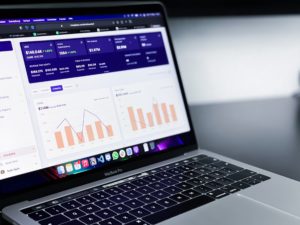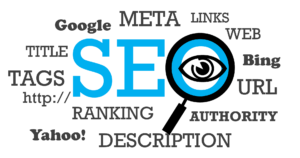Effective SEO strategies
Introduction
The importance of keyword ranking in SEO:
Keyword ranking plays a vital role in search engine optimization (SEO) as it directly impacts the visibility and organic traffic of a website. When a website ranks higher in search engine result pages (SERPs) for relevant keywords, it increases the chances of attracting more visitors and potential customers. Achieving a high keyword ranking is crucial for businesses aiming to establish their online presence, increase brand visibility, and drive targeted traffic to their websites.
Benefits of high keyword rankings for businesses:
Having high keyword rankings offers numerous benefits for businesses. Firstly, it improves online visibility, making it easier for potential customers to find their websites through search engines. The enhanced visibility results in a surge of organic traffic, potentially fostering increased brand exposure and conversions. Secondly, higher keyword rankings also enhance credibility and trustworthiness in the eyes of users, as websites that appear at the top of search results are often perceived as more reputable and reliable. Lastly, improved keyword rankings can result in a competitive edge, allowing businesses to outrank their competitors and establish themselves as industry leaders
Overview of the five strategies to increase keyword ranking:
To enhance keyword ranking through SEO, there are five effective strategies to consider. These strategies include conducting thorough keyword research, optimizing on-page elements, creating high-quality and relevant content, implementing technical SEO practices, and building high-quality backlinks. Each of these strategies contributes to improving keyword rankings by aligning the website with search engine algorithms, enhancing user experience, and demonstrating relevance and authority to search engines. By implementing these strategies, businesses can increase their chances of ranking higher for their target keywords and driving organic traffic to their websites.

Understanding Keywords and Rankings
Keywords are precise words or phrases that users type into search engines when seeking relevant information or websites. In SEO, keywords play a crucial role as they act as the bridge connecting user intent and website content. By strategically incorporating relevant keywords into various elements of a website, businesses can improve their chances of ranking higher in search engine result pages (SERPs) for those specific keywords. Keywords are the foundation of SEO and are instrumental in driving targeted organic traffic to a website.
How search engines determine keyword rankings:
Search engines employ complex algorithms to determine keyword rankings. These algorithms take into account various factors, including keyword relevance, user intent, website authority, and user experience. Search engines analyze and evaluate the content, structure, and performance of websites to assess their suitability for specific keywords. Factors such as keyword usage, on-page optimization, backlinks, user engagement metrics, and overall website quality all contribute to search engines’ decision-making process for keyword rankings.
Importance of targeting the right keywords for your website:
Targeting the right keywords is crucial for the success of your website in SEO. By understanding your target audience, their search behaviour, and the specific keywords they use, you can align your website’s content and optimization efforts accordingly. Targeting relevant and high-volume keywords that are directly related to your products, services, or industry increases the likelihood of attracting qualified traffic to your website. By focusing on the right keywords, you can optimize your website to better match user intent and increase the chances of ranking higher in search engine results, ultimately driving organic traffic and potential conversions.
Conducting Keyword Research
Importance of thorough keyword research:
For an effective SEO strategy, conducting thorough keyword research is essential. t helps businesses understand the language, preferences, and search behaviour of their target audience. By conducting in-depth keyword research, businesses can identify the specific keywords and phrases that potential customers are using to search for products or services. This knowledge enables businesses to optimize their website content, align it with user intent, and increase their chances of ranking higher in search engine result pages (SERPs). Thorough keyword research allows businesses to make informed decisions and prioritize their optimization efforts effectively.
Tools and techniques for effective keyword research:
Several tools and techniques are available to aid in effective keyword research. Keyword research tools such as Google Keyword Planner, SEMrush, Moz Keyword Explorer, and Ahrefs provide valuable insights into search volume, competition, and related keywords. These tools help identify relevant keywords and generate ideas for potential target keywords. Additionally, analyzing competitors’ websites, conducting customer surveys, monitoring social media discussions, and using Google Trends are effective techniques for discovering relevant keywords. By leveraging a combination of these tools and techniques, businesses can conduct comprehensive keyword research.
Identifying relevant keywords with high search volume and low competition:
When conducting keyword research, it is crucial to identify keywords with a balance of high search volume and low competition. High search volume indicates a significant number of users searching for a particular keyword, presenting a valuable opportunity for businesses to attract organic traffic. However, if the competition for a keyword is too high, it can be challenging to rank effectively. Therefore, it is advantageous to identify keywords that have substantial search volume but lower competition. This allows businesses to target keywords where they have a higher chance of ranking well and gaining visibility.
Long-tail keywords: their advantages and implementation strategies:
Long-tail keywords are specific, longer phrases that typically have lower search volume but higher conversion potential. These keywords are more specific and reflect the intent of users further along the conversion funnel. Long-tail keywords often have less competition, making it easier for businesses to rank well for them. Implementing long-tail keywords in website content helps businesses target a more specific audience, increase relevance, and attract highly motivated visitors. Incorporating long-tail keywords strategically throughout the website, including in titles, headings, and content, enhances the chances of capturing organic traffic from users with specific search queries.

On-Page Optimization for Keyword Ranking
Importance of on-page optimization for keyword ranking:
Improving keyword rankings heavily relies on on-page optimization. It involves optimizing various elements within a web page to enhance its relevance and visibility to search engines. By strategically optimizing on-page elements, businesses can send clear signals to search engines about the content and keywords they are targeting. Effective on-page optimization not only helps search engines understand the relevance of a webpage but also enhances the overall user experience, leading to improved keyword rankings and increased organic traffic.
Optimizing title tags, meta descriptions, and header tags:
Title tags, meta descriptions, and header tags are critical on-page elements that should be optimized for keyword ranking.
- The title tag appears as the clickable headline in search engine results, and it should include the targeted keyword and accurately describe the content of the page.
- Meta descriptions, the summaries displayed below the title tag, should be compelling, informative, and contain relevant keywords.
- Header tags (H1, H2, H3, etc.) provide structure to the content and should include variations of the targeted keyword.
Optimizing these elements with relevant keywords helps search engines understand the content and context of the webpage.
Incorporating keywords naturally in the content:
Incorporating keywords naturally in the content is vital for both search engines and users. Keyword stuffing, or excessively overusing keywords, can result in penalties from search engines. Instead, businesses should focus on creating high-quality, informative, and engaging content that naturally incorporates targeted keywords. It is important to ensure that the content flows naturally and is readable for users while providing valuable information. Including keywords in headings, subheadings, and strategically throughout the content helps search engines understand the topic and relevance of the webpage.
Utilizing internal linking to boost keyword visibility:
Internal linking involves connecting relevant pages within a website’s content. It not only helps users navigate a website but also assists search engines in discovering and indexing pages. Internal linking provides an opportunity to boost keyword visibility by using anchor text that includes targeted keywords. By linking related pages with appropriate anchor text, businesses can establish a hierarchical structure and signal to search engines the importance and relevance of specific keywords. Strategic internal linking enhances website navigation, distributes link authority, and improves the overall keyword ranking potential of a website.
Creating High-Quality and Relevant Content
Importance of high-quality content for SEO:
High-quality content is paramount for successful SEO. Search engines prioritize delivering the best user experience, and quality content is a key factor in achieving that goal. High-quality content provides value, answers user queries, and addresses their needs. Search engines recognize and reward websites that consistently produce relevant, informative, and engaging content. By creating high-quality content, businesses can improve their website’s visibility, increase organic traffic, and establish their authority and credibility in their industry or niche.
Understanding user intent and creating content to match it:
Understanding user intent is crucial in creating content that aligns with what users are searching for. By comprehending the underlying reasons behind specific search queries, businesses can tailor their content to fulfil user needs effectively. Content should address the various stages of the user journey, whether it’s providing information, solving a problem, or facilitating a purchase decision. By analyzing search intent and conducting thorough keyword research, businesses can develop content that matches user intent, enhances relevance, and increases the likelihood of ranking higher in search engine results.
Incorporating targeted keywords strategically in content:
Strategic keyword incorporation is vital for optimizing content for SEO. Targeted keywords should be incorporated naturally and strategically throughout the content. Keyword placement in headings, subheadings, and the opening and closing paragraphs can signal search engines about the content’s topic and relevance. However, it’s essential to maintain a balance and avoid keyword stuffing, as search engines may penalize websites for excessive keyword usage. Incorporating variations of the targeted keywords and using semantic keywords that are contextually related can also enhance the content’s relevancy and keyword ranking potential.
Optimizing content length, readability, and engagement:
Optimizing content length, readability, and engagement is critical for both users and search engines. The ideal content length may vary depending on the topic and user intent, but generally, comprehensive and in-depth content tends to perform well. Long-form content allows businesses to cover topics comprehensively, provide valuable insights, and satisfy user intent. However, readability should not be compromised. Utilizing concise paragraphs, subheadings, bullet points, and appropriate formatting improves readability and user experience.
Engaging content that incorporates visuals, multimedia, and interactive elements can further enhance user engagement, reduce bounce rates, and increase the time users spend on the website. Search engines consider these user engagement metrics when evaluating the quality and relevance of the content.
Technical SEO for Keyword Ranking
Importance of technical SEO in improving keyword rankings:
Technical SEO is a critical aspect of optimizing a website for keyword rankings. It focuses on the technical aspects that influence search engine crawlers’ ability to access, understand, and index a website. By addressing technical SEO issues, businesses can improve their website’s performance, user experience, and keyword rankings. Technical SEO ensures that search engines can effectively crawl and interpret website content, leading to better visibility and higher keyword rankings.
Optimizing website loading speed and mobile responsiveness:
Website loading speed and mobile responsiveness are crucial factors in technical SEO that impact keyword rankings. A slow-loading website can lead to higher bounce rates and negatively affect user experience. Optimizing the website’s code, reducing file sizes, leveraging caching techniques, and choosing a reliable hosting provider can significantly improve loading speed. Additionally, optimizing the website for mobile devices ensures a seamless experience for mobile users. With the increasing prevalence of mobile searches, search engines prioritize mobile-friendly websites, and mobile responsiveness positively impacts keyword rankings.
By implementing structured data markup, you can improve search visibility:
Structured data markup, also known as schema markup, is a code added to the website’s HTML that helps search engines understand the content better. By implementing structured data markup, businesses can provide additional context and information about their content, such as product details, ratings, reviews, event information, and more. This enhanced understanding by search engines can result in rich snippets and other search result enhancements, which can improve search visibility and click-through rates. By incorporating structured data markup, businesses can gain a competitive advantage and increase their keyword rankings.
Optimizing website architecture and URL structure:
Website architecture and URL structure play a significant role in technical SEO and keyword rankings. A well-organized website structure with clear navigation and hierarchical organization enables search engines to crawl and index the website more efficiently. Businesses should ensure logical categorization of content, use descriptive and keyword-rich URLs, and implement breadcrumb navigation for enhanced user experience and search engine visibility. Optimized website architecture and URL structure contribute to better keyword rankings by facilitating search engines’ understanding of the website’s structure and content organization.

Building High-Quality Backlinks
Significance of backlinks in SEO and keyword ranking:
Backlinks are crucial for SEO and keyword ranking as they serve as a vote of confidence and credibility from other websites. Search engines consider backlinks as indicators of a website’s authority, relevance, and trustworthiness. Websites with a strong backlink profile are more likely to rank higher in search engine result pages (SERPs) for their targeted keywords. High-quality backlinks from reputable and relevant websites not only drive direct referral traffic but also signal to search engines that the linked website is a valuable resource, leading to improved keyword rankings.
Strategies for acquiring high-quality backlinks:
Acquiring high-quality backlinks requires a strategic approach. Some effective strategies include:
- Creating valuable and shareable content: Producing high-quality content that provides unique insights, solves problems, or offers valuable information increases the likelihood of other websites linking to it.
- Outreach and relationship building: Reaching out to relevant websites and influencers in your industry and building relationships can result in natural backlink opportunities.
- Guest blogging: Writing guest posts for reputable websites in your niche allows you to showcase your expertise and acquire backlinks from authoritative sources.
- Broken link building: Identifying broken links on other websites and offering your content as a replacement is a win-win strategy for acquiring backlinks.
- Participating in industry-specific forums and communities: Engaging in discussions and sharing valuable insights can lead to backlink opportunities from forum threads or community websites.
Guest blogging, influencer outreach, and content promotion techniques:
Guest blogging involves writing and publishing articles on other websites as a guest contributors. This strategy allows you to tap into the audience of the hosting website and gain exposure, while also acquiring backlinks to your website. Influencer outreach involves connecting with influential individuals in your industry and leveraging their network to secure backlinks and amplify your content. Content promotion techniques, such as social media promotion, email outreach, and content distribution platforms, help increase the visibility of your content, attracting attention from relevant websites and potential backlink opportunities.
Avoiding low-quality and spammy backlinks:
It is crucial to avoid low-quality and spammy backlinks as they can have a detrimental impact on keyword rankings and overall website credibility. Low-quality backlinks from irrelevant, low-authority, or spammy websites can result in search engine penalties. To avoid such links, businesses should conduct thorough research and vetting before pursuing backlink opportunities. Focus on acquiring links from reputable and relevant websites that have genuine editorial control over the content they publish. Regularly monitor your backlink profile and disavow any suspicious or harmful links that may negatively impact your keyword rankings and website reputation.
Monitoring Keyword Rankings
Tools for tracking keyword rankings:
Several tools are available for tracking keyword rankings and monitoring the performance of your website in search engine result pages (SERPs). Popular keyword tracking tools include SEMrush, Ahrefs, Moz, Google Search Console, and Rank Tracker. These tools provide valuable insights into keyword positions, search volume, organic traffic, and competitor rankings. By utilizing these tools, businesses can track their keyword rankings accurately and make data-driven decisions to improve their SEO strategies.
Importance of regular monitoring and analysis:
Regular monitoring and analysis of keyword rankings are essential for assessing the effectiveness of your SEO efforts. By tracking keyword rankings over time, businesses can identify trends, track progress, and measure the impact of optimization strategies. Regular monitoring helps identify any fluctuations or drops in keyword rankings, allowing businesses to take timely action and address potential issues. Additionally, analyzing keyword performance provides insights into user behaviour, search trends, and areas of opportunity for improvement, ultimately leading to better keyword rankings and increased organic traffic.
Making adjustments based on keyword performance:
Monitoring keyword rankings allows businesses to identify keywords that are performing well and those that may need improvement. By analyzing keyword performance data, businesses can make informed decisions about optimizing their content, adjusting on-page elements, or refining their keyword targeting strategies. For keywords that are ranking well, businesses can explore opportunities to further enhance their visibility and capture more organic traffic. On the other hand, keywords that are underperforming can be reassessed and optimized to improve their rankings and attract more targeted visitors.
Tracking competitor keyword rankings and adjusting strategies:
Tracking competitor keyword rankings is crucial for staying competitive and adjusting your SEO strategies accordingly. By monitoring your competitors’ keyword rankings, businesses can gain insights into their strengths, weaknesses, and the strategies they are implementing. This information can help identify opportunities to differentiate your own keyword targeting and content creation strategies. Analyzing competitor rankings allows businesses to learn from their successes and failures, adapt their strategies, and identify potential gaps in the market to target specific keywords and improve their rankings.
Frequently Asked Questions (FAQs)
- How long does it take to see improvements in keyword rankings?
The time it takes to see improvements in keyword rankings can vary depending on several factors, such as the competitiveness of the keywords, the quality of your SEO efforts, and the authority of your website. In general, it can take several weeks to several months to see noticeable improvements. SEO is a long-term strategy, and consistent efforts are required to achieve and maintain higher keyword rankings.
- Should I focus on long-tail keywords or broader keywords?
Your specific goals and the nature of your business determine whether to opt for long-tail keywords or broader keywords. Long-tail keywords are more specific and typically have lower search volume but can result in higher conversion rates as they cater to users with clear intent. Broader keywords have higher search volume but are often more competitive. It’s recommended to have a balanced approach and include a mix of long-tail and broader keywords in your keyword targeting strategy.
- Are there any risks associated with keyword stuffing?
Yes, keyword stuffing can pose risks to your website’s SEO and keyword rankings. Keyword stuffing is the practice of excessively and unnaturally using keywords in content with the intention of manipulating search engine rankings. Search engines consider keyword stuffing a spammy practice and may penalize websites that engage in it. It’s important to prioritize creating high-quality, valuable content that incorporates keywords naturally and provides a positive user experience.
- What are the best practices for optimizing content length?
Content length should be determined based on the topic, user intent, and competition in your industry. In general, comprehensive and in-depth content tends to perform well. Aim to provide thorough information, address user needs, and cover the topic comprehensively. However, it’s crucial to maintain readability and avoid unnecessary repetition. Utilize headings, subheadings, bullet points, and other formatting techniques to enhance readability. Ultimately, the focus should be on delivering value to users rather than strictly adhering to a specific word count.
- How can I recover from a drop in keyword rankings?
A drop in keyword rankings can occur due to various reasons, such as algorithm updates, technical issues, or changes in your website or content. To recover, start by conducting a thorough analysis to identify the potential causes of the drop. Check for any technical issues, review your content for relevance and quality, and assess your backlink profile. Make the necessary optimizations and improvements based on your findings. Additionally, continue producing high-quality content, refine your keyword targeting strategies, and consider seeking professional SEO assistance if needed. Recovery may take time, so patience and consistent efforts are key.
Conclusion
In this article, we have explored five effective strategies to increase keyword ranking through SEO. By conducting thorough keyword research, optimizing on-page elements, creating high-quality content, implementing technical SEO practices, and building high-quality backlinks, businesses can significantly improve their keyword rankings and drive organic traffic to their websites.
It is important to adopt a holistic approach to SEO, recognizing that focusing on one aspect alone may limit results. By combining various strategies such as keyword research, on-page optimization, content creation, technical SEO, and link building, businesses can maximize their chances of achieving higher keyword rankings and long-term organic visibility.
Consistent monitoring and adaptation are crucial for sustained success. SEO is an ever-evolving field, and keyword rankings can fluctuate over time. By regularly monitoring keyword rankings, analyzing performance data, and making data-driven decisions, businesses can identify areas for improvement and stay ahead of the competition. SEO is an ongoing process that requires continuous optimization and adaptation to remain competitive in the dynamic digital landscape.
By implementing the strategies discussed, adopting a holistic SEO approach, and staying proactive in monitoring and adapting, businesses can enhance their keyword rankings, increase organic visibility, and attract valuable traffic to their websites. SEO is a long-term investment that requires dedication, but the rewards in terms of improved keyword rankings and online success make it worthwhile.
Remember, the world of SEO is constantly changing, so staying informed about the latest trends and best practices will help businesses maintain and improve their keyword rankings over time.

